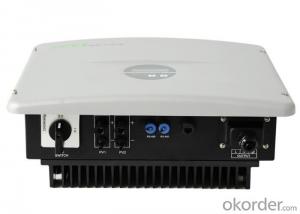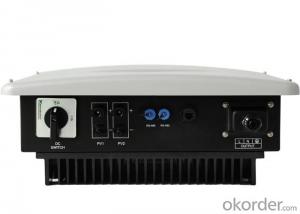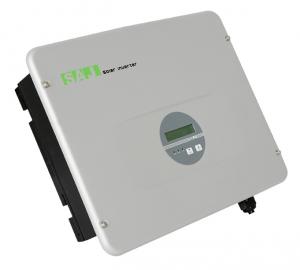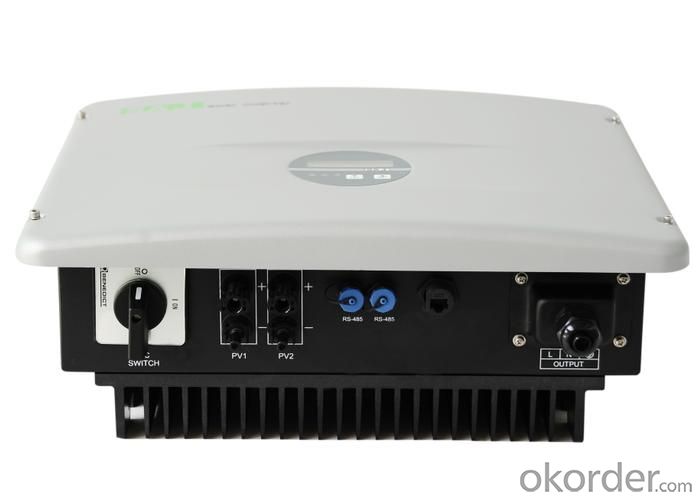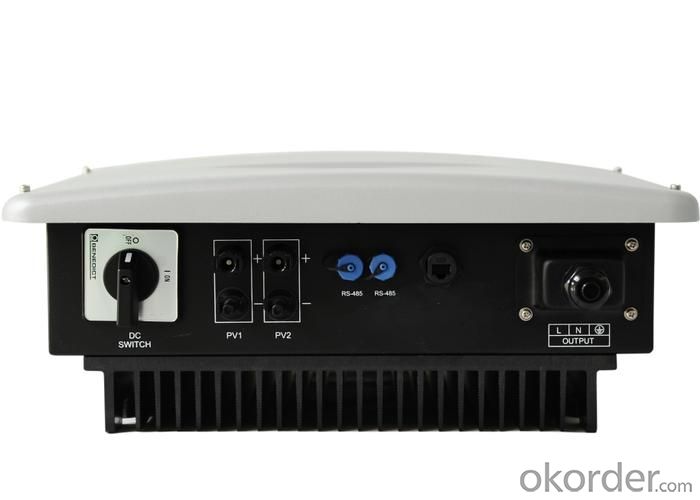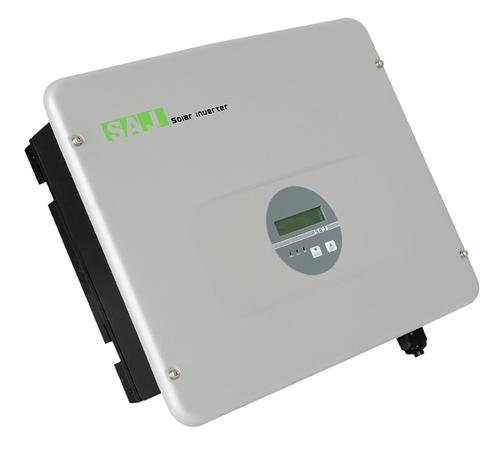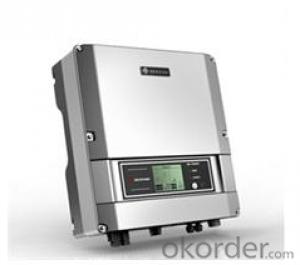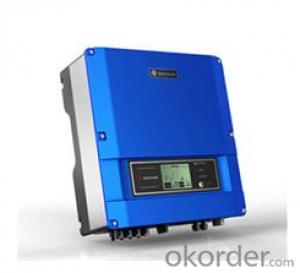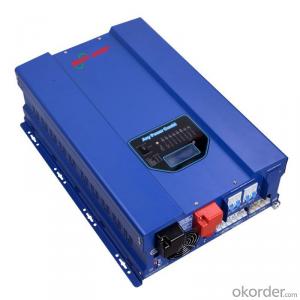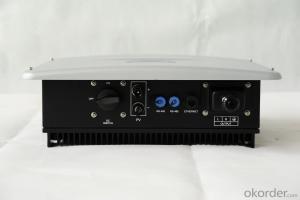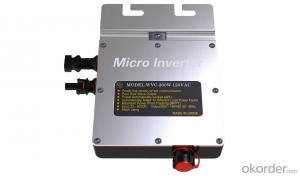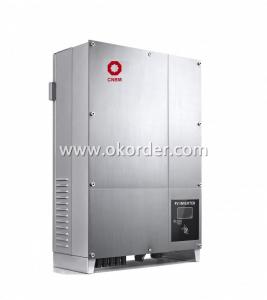Sununo-TL2K Single Phase Solar Inverter Manufacturer
- Loading Port:
- China main port
- Payment Terms:
- TT OR LC
- Min Order Qty:
- 1 pc
- Supply Capability:
- 1000 pc/month
OKorder Service Pledge
OKorder Financial Service
You Might Also Like
Specification
1.Flexible
• Ethernet / Wi-Fi communication
• Wide range of DC input voltage
• IP65 for indoor and outdoor use
2.Reliable
• Comprehensive protection functions
• Compact design, fanless
• First-class components
3.Efficient
• Max. efficiency up to 97.7%
• Euro. efficiency up to 97.1%
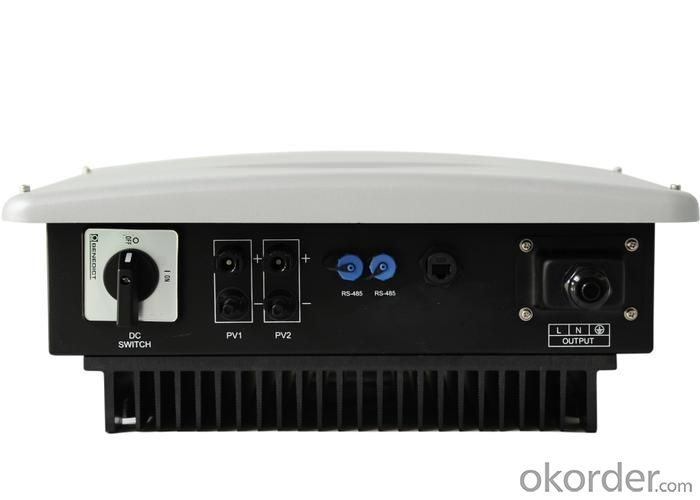
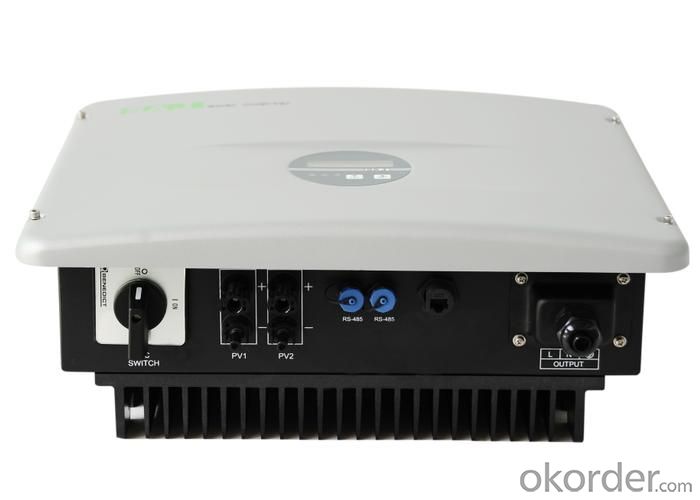
• MPPT accuracy up to 99.9%
4. Certificates: TUV,SAA,G83,ISO9001,ISO14001,etc.
FAQ
1. How long will my inquiry get response?
Your inquiry related to our products or prices will be replied within 24 hours.
2. Can I get professional service and suggestion?
Well-trained and experienced staffs to answer all your questions in fluent English.
3. Do you accept OEM or customized design?
OEM & ODM, any your customized lightings we can help you to design and put into product.
4. What if I need specific design?
Distributorship are offered for your unique design and some our current models.
- Q: How do you calculate the maximum power point current for a solar inverter?
- To calculate the maximum power point current for a solar inverter, you need to determine the maximum power point voltage (Vmpp) of the solar panel and divide it by the inverter's input impedance. This can be done by using the voltage-current (V-I) curve of the solar panel and locating the point where the product of voltage and current is maximized. By obtaining the Vmpp value, you can then calculate the maximum power point current by dividing it by the inverter's input impedance.
- Q: What are the potential risks of overheating a solar inverter?
- The potential risks of overheating a solar inverter include reduced efficiency and performance, increased wear and tear on components, shortened lifespan of the inverter, potential damage to internal circuitry, and even the risk of fire.
- Q: What certifications should a solar inverter have?
- A solar inverter should have certifications such as UL 1741, IEC 62109, and IEEE 1547 to ensure its safety, reliability, and compliance with industry standards. Additionally, certifications like ISO 9001 and ISO 14001 can demonstrate the manufacturer's commitment to quality and environmental management.
- Q: How does MPPT improve the performance of a solar inverter?
- MPPT (Maximum Power Point Tracking) is a technique used in solar inverters to enhance their performance and maximize the energy output of the solar panels. Solar panels generate direct current (DC) electricity, which needs to be converted into alternating current (AC) to be used by household appliances or fed back to the grid. However, the amount of power generated by solar panels varies depending on factors like sunlight intensity, temperature, shading, and panel orientation. MPPT algorithms enable solar inverters to continuously track and adjust the operating point of the solar panels to extract the maximum power available. By continuously monitoring the voltage and current output of the solar panels, the MPPT controller determines the optimal operating voltage and current that will yield the highest power output. This optimization process is crucial because solar panels have a specific voltage and current combination at which their power output is maximized, known as the maximum power point (MPP). By operating the solar panels at their MPP, MPPT significantly improves the overall efficiency and performance of the solar inverter. With MPPT, solar inverters can adapt to changing environmental conditions and extract the maximum available power from the solar panels. This allows for increased energy production, reducing the reliance on grid electricity and maximizing the return on investment in solar installations. In summary, MPPT improves the performance of a solar inverter by optimizing the operating point of the solar panels to extract the maximum power available. This leads to increased energy production, improved efficiency, and better utilization of solar energy resources.
- Q: How does a solar inverter handle power factor optimization?
- A solar inverter handles power factor optimization by continuously monitoring the power factor of the AC output and adjusting its operation accordingly. It employs various techniques such as reactive power compensation, voltage regulation, and harmonic suppression to ensure that the power factor remains close to unity, maximizing the efficiency of the solar system.
- Q: Can a solar inverter be used for three-phase power systems?
- Yes, a solar inverter can be used for three-phase power systems. Three-phase solar inverters are specifically designed to convert the DC power generated by solar panels into AC power for three-phase electrical systems. These inverters are capable of handling higher power loads and are commonly used in commercial and industrial settings where three-phase power is required.
- Q: Can a solar inverter be used in regions with high altitude conditions?
- Yes, a solar inverter can be used in regions with high altitude conditions. However, it is important to consider certain factors such as temperature, air density, and potential voltage fluctuations that can affect the performance of the solar inverter at high altitudes. Specialized inverters or adjustments may be required to ensure optimal functioning in such conditions.
- Q: Can a solar inverter be used for commercial applications?
- Yes, a solar inverter can definitely be used for commercial applications. In fact, solar inverters are commonly utilized in commercial settings to convert the direct current (DC) electricity generated by solar panels into usable alternating current (AC) electricity that can power various commercial appliances and equipment.
- Q: How does a solar inverter communicate with other devices?
- A solar inverter communicates with other devices through various communication protocols such as Wi-Fi, Ethernet, Bluetooth, or RS-485. These protocols enable the inverter to connect and exchange data with devices such as monitoring systems, smart meters, batteries, or grid infrastructure. This communication allows for real-time monitoring, remote control, and efficient integration of solar power into the electrical grid or home energy management systems.
- Q: What is the role of a solar inverter in a battery storage system?
- The role of a solar inverter in a battery storage system is to convert the direct current (DC) electricity produced by the solar panels into alternating current (AC) electricity that can be used to power household appliances and charge the battery. It also manages the flow of electricity between the solar panels, battery, and the grid, ensuring optimal utilization of the stored energy and facilitating grid interaction when necessary.
Send your message to us
Sununo-TL2K Single Phase Solar Inverter Manufacturer
- Loading Port:
- China main port
- Payment Terms:
- TT OR LC
- Min Order Qty:
- 1 pc
- Supply Capability:
- 1000 pc/month
OKorder Service Pledge
OKorder Financial Service
Similar products
Hot products
Hot Searches
Related keywords
